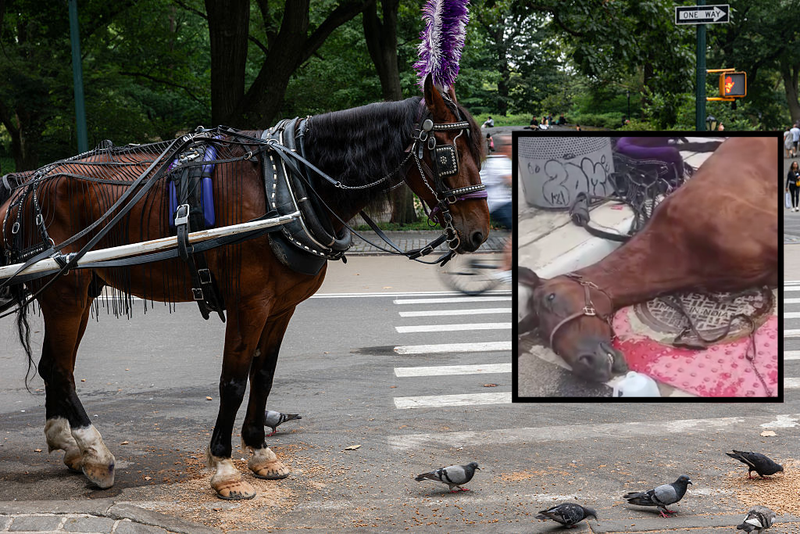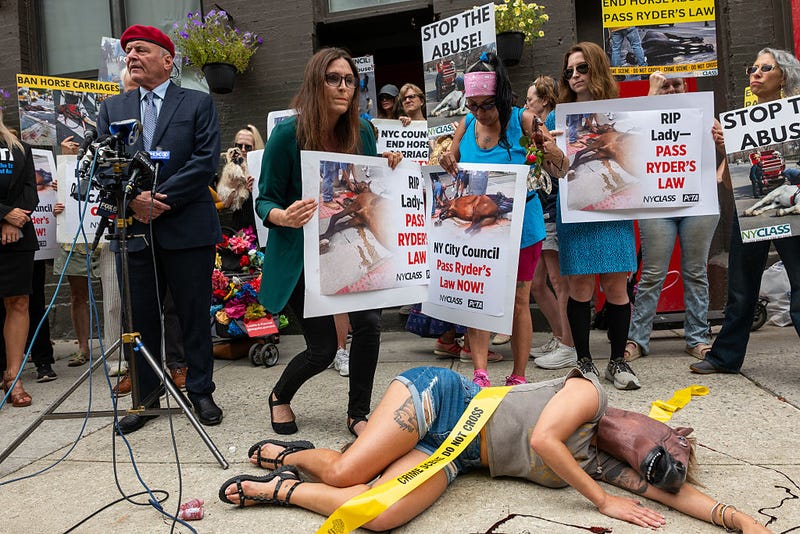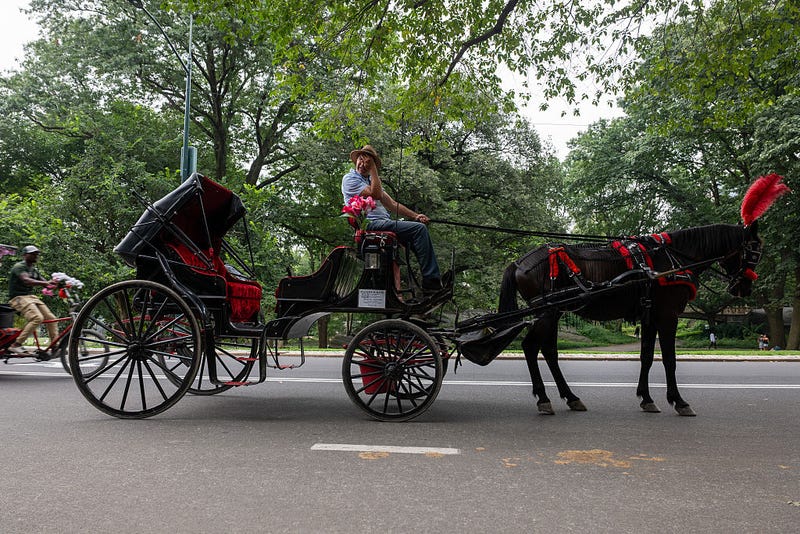
NEW YORK (1010 WINS) — After years of maintaining a neutral stance on the operation of horse-drawn carriages in New York City, the Central Park Conservancy has come out in support of banning them as a “matter of public health and safety.”
The declaration came after a 15-year-old carriage horse named Lady died last week on a street in Hell’s Kitchen, reigniting the debate about whether horse-drawn carriages should continue to be allowed in the city.
Lady had only worked as a carriage horse since June, and was deemed in good physical condition during her physical earlier this summer. Her cause of death is not yet known.
“The public safety risks, infrastructure damage, and repeated violations of city regulations caused by horse-drawn carriages can no longer be ignored,” the conservancy said in a statement. “Simply put, this practice is no longer compatible with the realities of a modern, heavily used, and shared public space. We believe it’s time to turn the page, as most major cities already have.”

The statement was released alongside a full letter addressed to Mayor Eric Adams and NYC Council Speaker Adrienne Adams, signed by president and CEO of the conservancy Elizabeth Smith, unequivocally vocalizing support for Ryder’s Law.
Ryder’s Law—which would phase out the operation of horse-drawn carriages in the city by 2026 and help drivers transition to other jobs—was first introduced in 2022 by councilmember Robert Holden after the death of carriage horse Ryder, months after he collapsed on a Manhattan street.
The bill is sponsored by 19 representatives but has not had a hearing since being reintroduced in 2024.
In the letter, the park nonprofit cited two incidents in May when horses ran off from their drivers and were loose, in one case injuring a pedicab driver. It also noted the issue of manure left on park drives, and the illegal lines of carriages near Columbus Circle.
TWU Local 100, the union representing carriage horse drivers, blasted the conservancy as a group of “corporate aristocrats” that was “outrageously supporting a measure that would throw about 200 blue-collar workers in the carriage-horse tourism industry out of work.”

The union pointed to the conservancy’s complaint that the “slow-moving” horse carriages are a threat when the group has “failed miserably” to manage the stream of motorized pedicabs, e-bikes and electric scooters in the park which it says pose a greater threat.
To address some of the concerns raised by the conservancy, the union suggested that a stable be commissioned in the park—on land not currently open to the public—so the horses would have no need to walk on city streets.
Nonprofit and animal advocacy group New Yorkers for Clean, Livable, and Safe Streets (NYCLASS) has been pushing for Ryder’s Law for years, calling the practice of horse carriages “city sanctioned abuse” when news of Lady’s death broke.
“Mayor Adams is heartbroken by this incident, and we’re dedicated to finding a better path forward to prevent tragedies like the one that happened last week,” a City Hall spokesperson said Tuesday. “We are working diligently to bring stakeholders to the table to keep our parks, animals, and all New Yorkers safe.”
